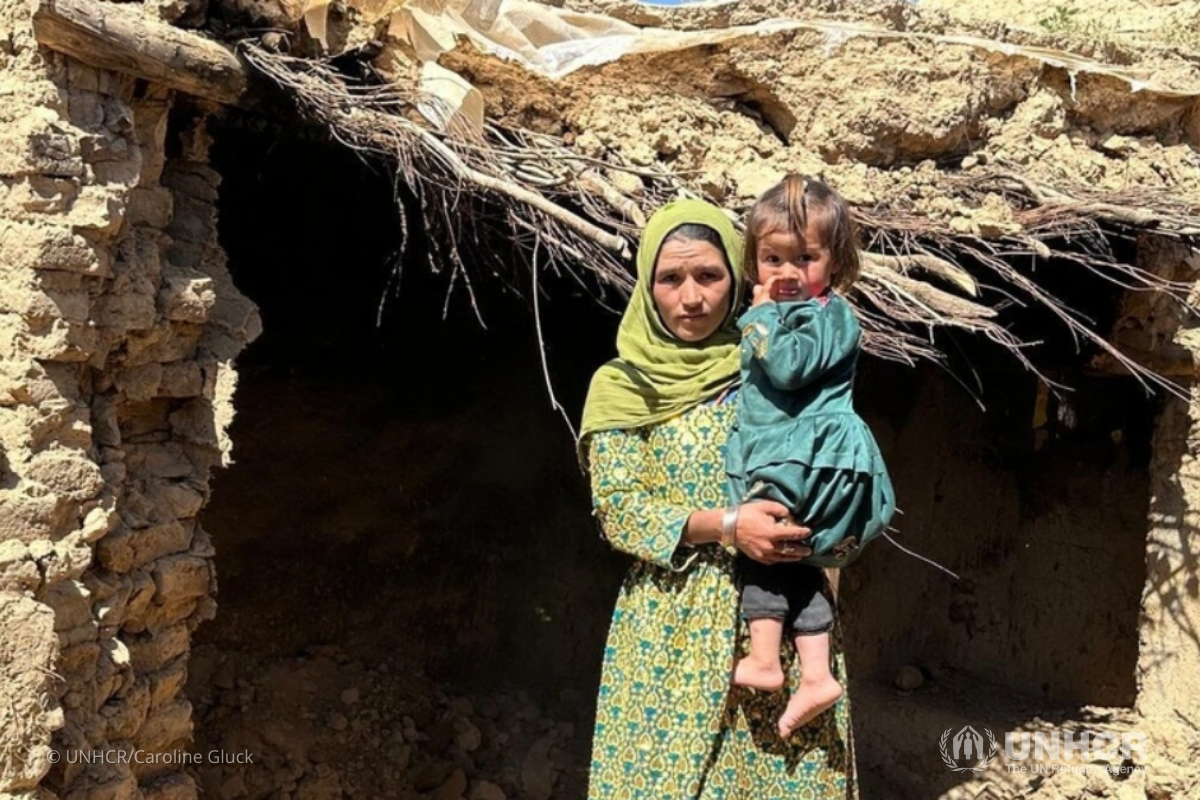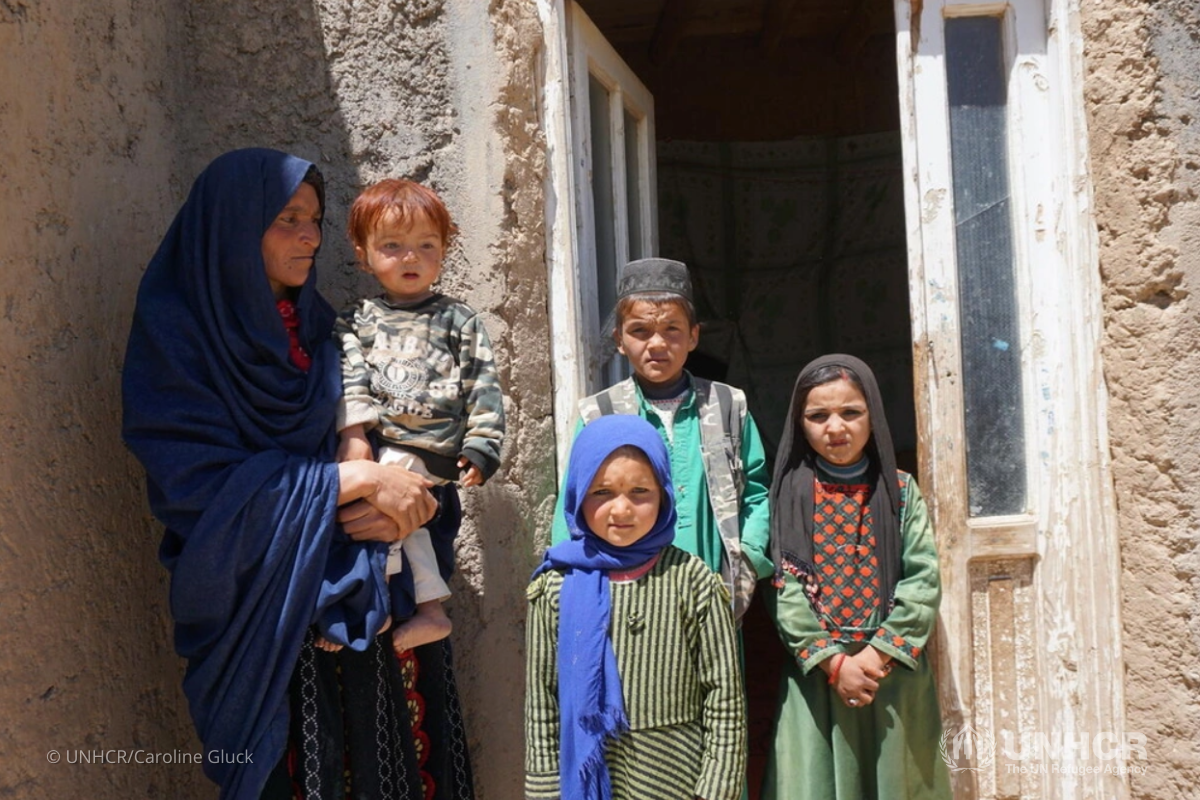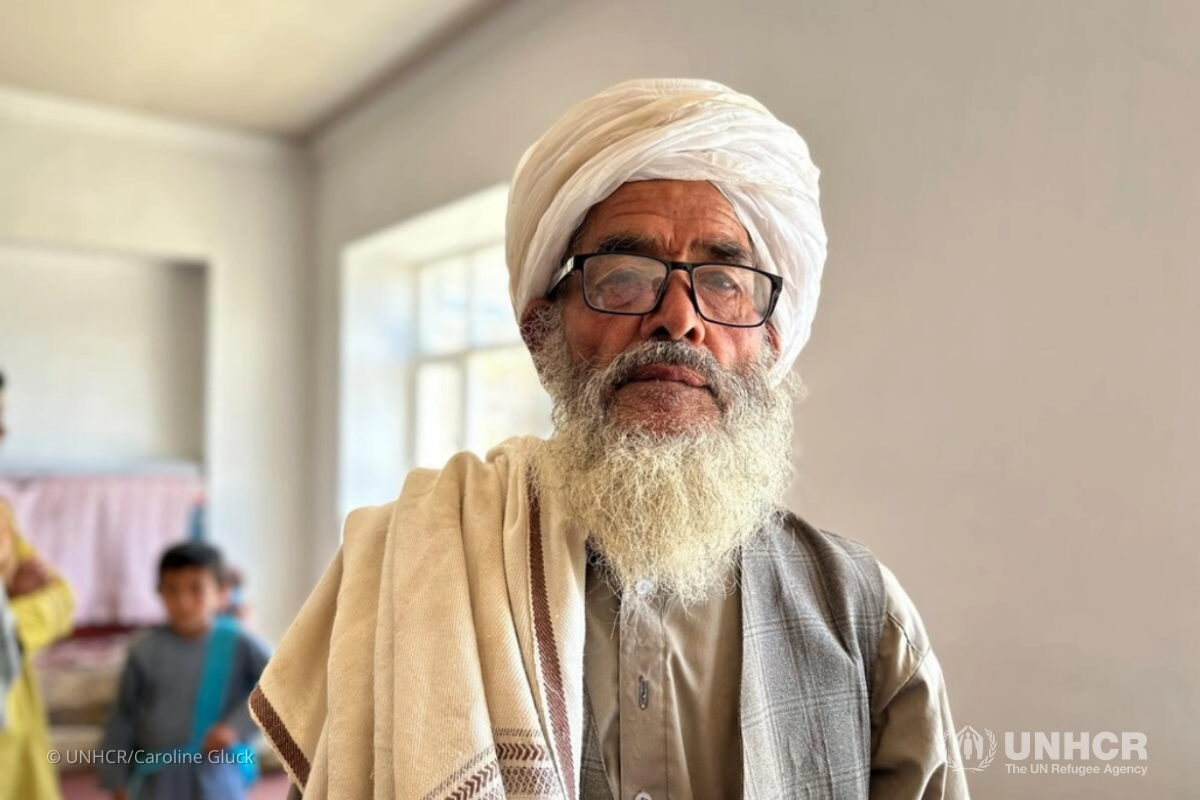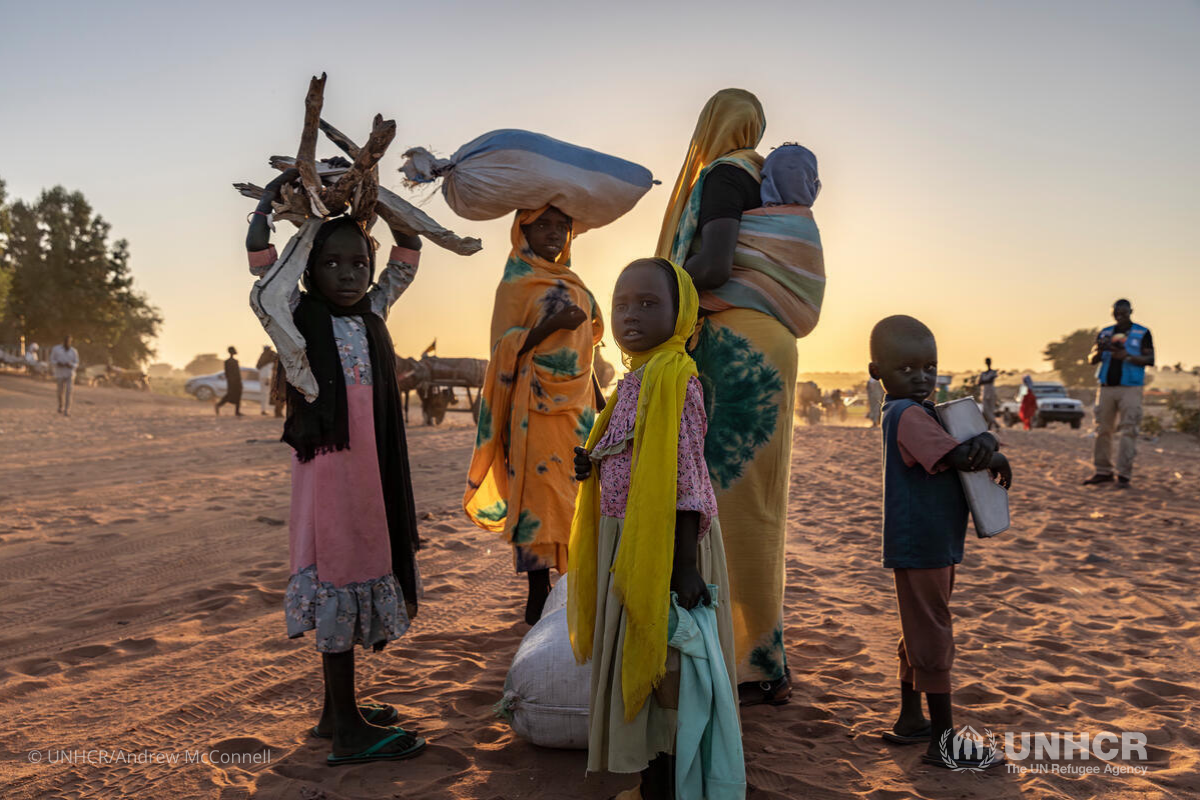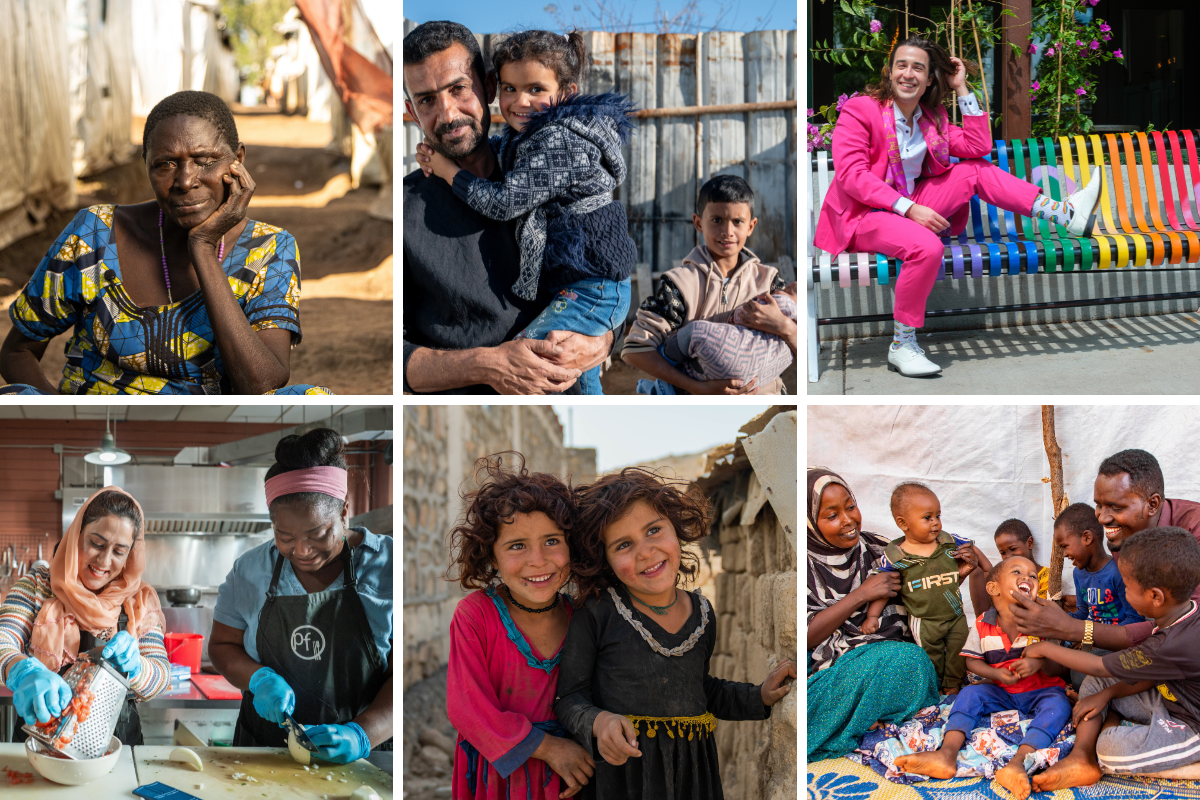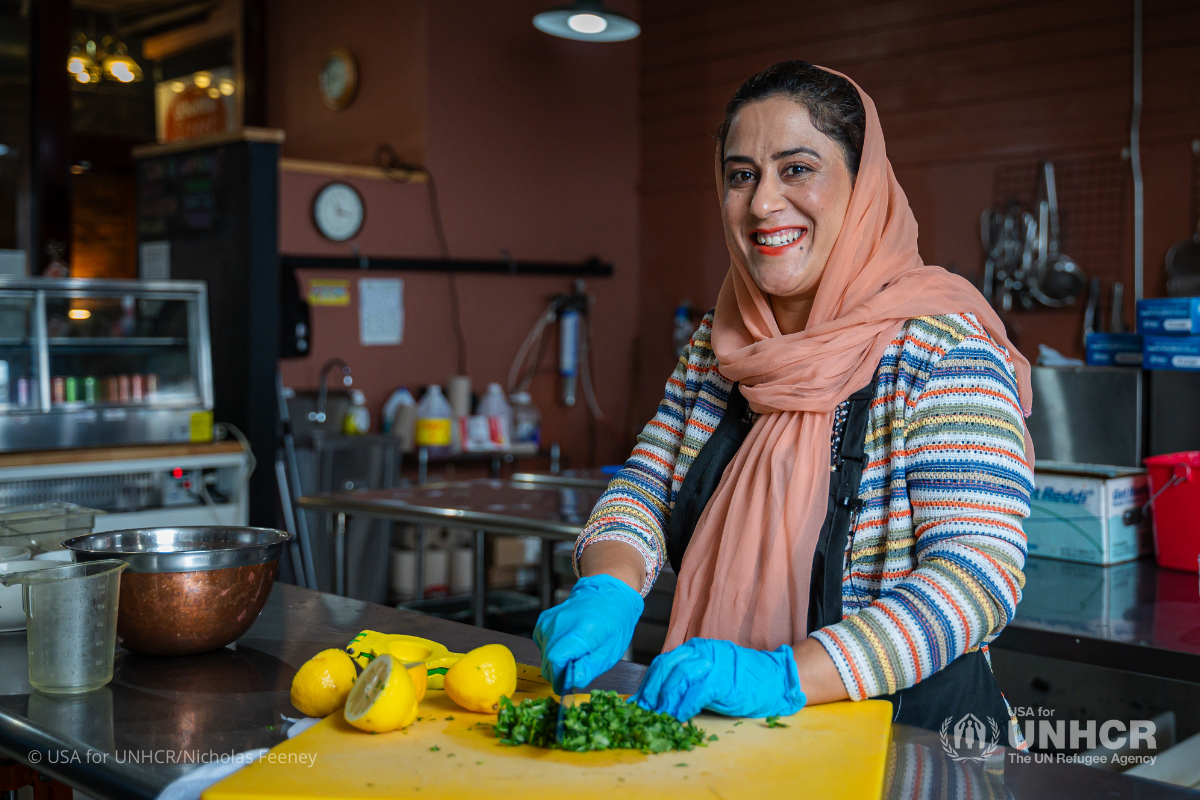“The flood has affected people both mentally and physically,” said Parigul. “I met several women who suffered miscarriages because of the fear and anxiety after the floods.”
Children suffer too
Children are among the worst affected, with parents reporting their youngsters being unable to sleep, suffering nightmares and bedwetting, and exhibiting uncharacteristic, extreme emotions since the floods, such as shouting and crying.
“My son is very traumatized and my daughter has fever and diarrhea,” said Abdul Basir, a laborer, in Jar-e-Saifor village. “My son yells and wants to stay near me all the time. He is always holding my hand.”
Children in Dara-e Shaikha village used to study in tents, but now attend class outdoors and exposed to the elements after they were destroyed in the floods. Nevertheless, teacher Abdul Wahid Samadi is determined to continue classes as long as he can, providing some routine and structure for pupils suffering in the aftermath of the flooding.
“We can use this place for a few days, and we want to continue their education, but students are getting sick,” he said. “Some have diarrhea or sore throats. We need agencies to help us with somewhere to study.” Abdul Wahid added that already several families had moved away from the area in search of a new start after losing everything.
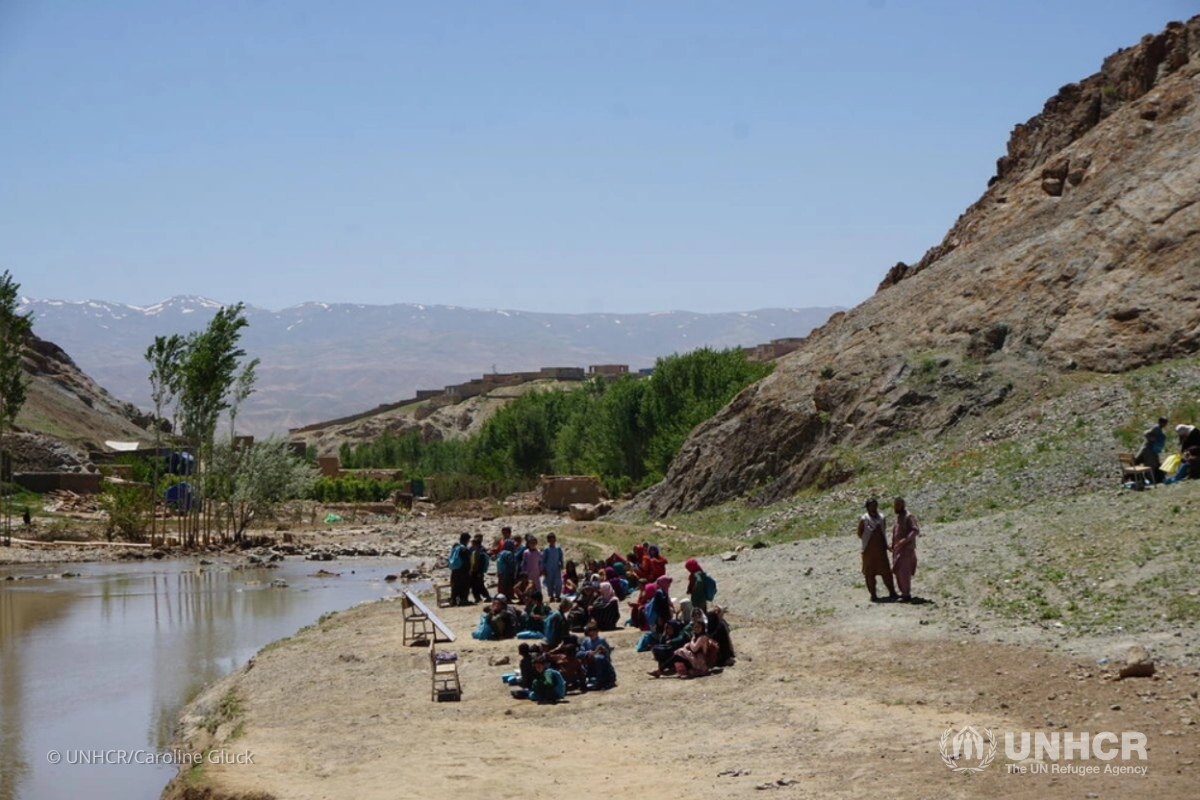
With so many households losing what little they had – their homes, but also their sources of income such as crops and fruit trees, shops, motorbikes, and other assets – rebuilding will be hard.
Gulbuddin Amiri, a displaced Afghan and father of six, now living in Dahan-e-Kandiwal village, lost his small charcoal stall in the local bazaar in the floods, while his remaining stock, stored at home, was also damaged, left coated in mud and unsellable.
“I have nothing now,” Gulbuddin said, outside his ruined, mud-covered rented home. “We don’t have enough food, and we don’t have shelter,” he said. In his arms, he held his four-year-old son, Sadridin, who had just come back from hospital, suffering from flu. “We need everything,” he said. “We are hungry and need help to return to our normal lives again.”
